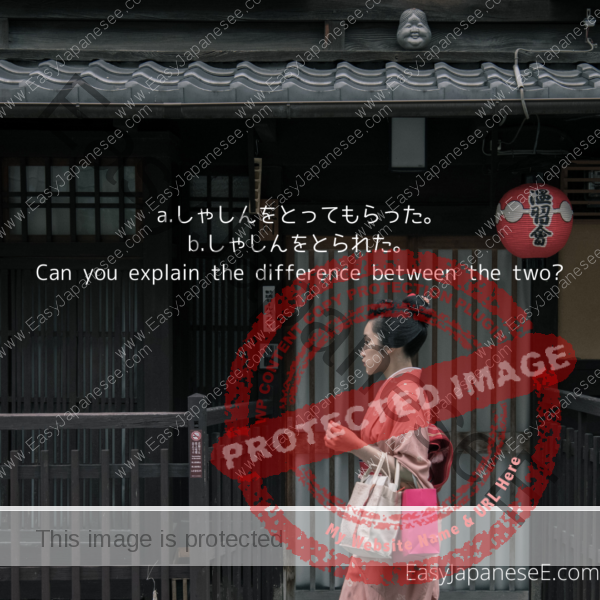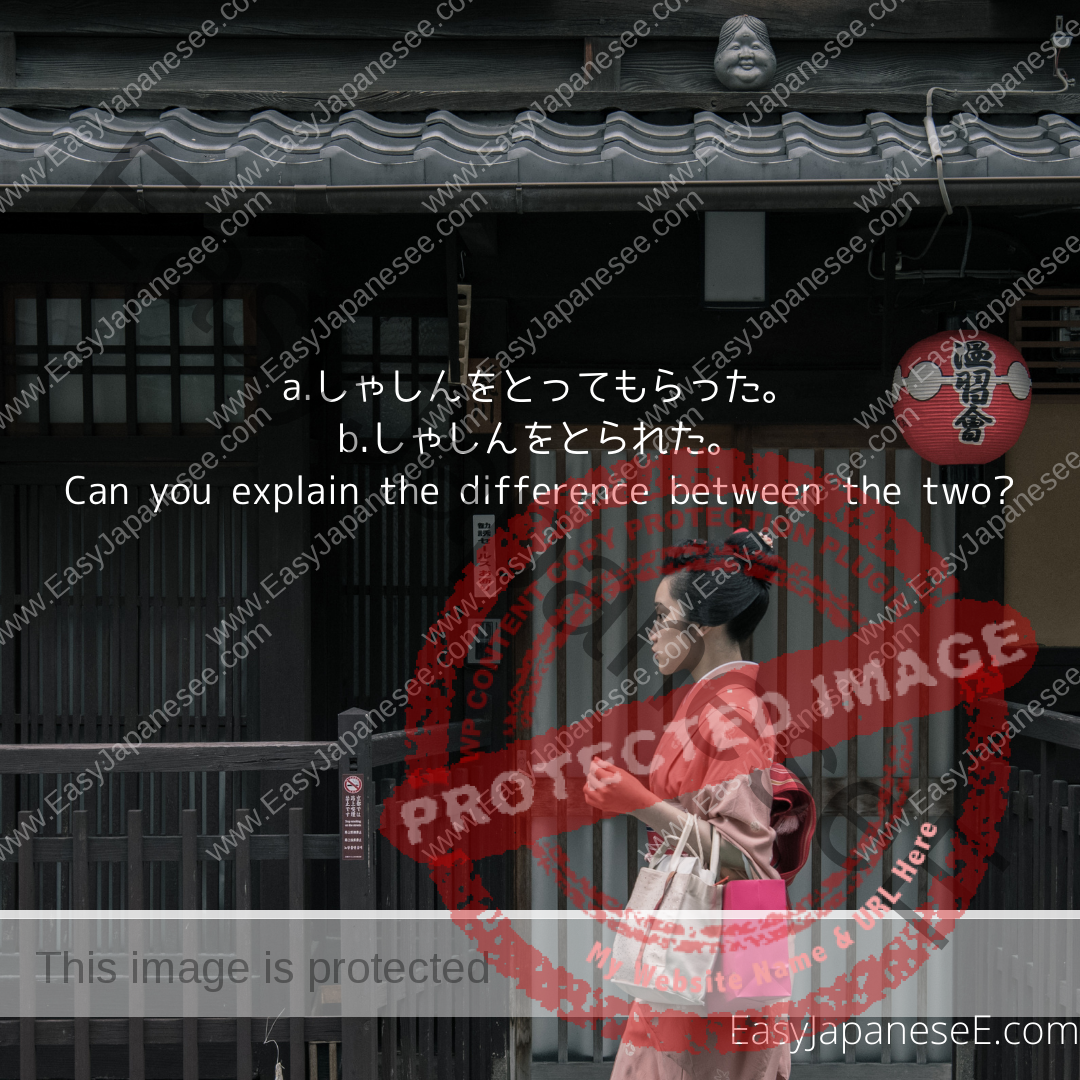
Today’s Grammar Point: ~-aれる /~られる
~-aれる/~られる is the passive form of a verb which is used when an action is done (to you or to the subject) without your/the subject’s active involvement like “I/He was laughed at” or “a cake was eaten.” English also has the passive voice but the biggest difference in passive sentences between English and Japanese is that in Japanese, intransitive verbs like “しぬ (to die)” or “くる (to come)” can be used in the passive form while in English, only transitive verbs which take an object (which becomes the new subject of the passive sentence in turn) can be used in the passive voice (for difference between transitive and intransitive verbs, please watch this video). Also, if an action was done to the subject by somebody else with the subject’s approval/blessing, we usually use the pattern ~てもらう, so the passive form is often used in a negative context and implies the subject’s resentment, disapproval, etc., although if the action was not done by a person, a passive form can be used in a positive meaning.
How to change into the passive form
- ichi-dan verbs: add られ between the stem and る/ます(i.e. ~る/~ます⇒~られる/~られます)
- みる/みます(to watch) ⇒ みられる/みられます (to be watched)
- たべる/たべます (to eat) ⇒ たべられる/たべられます (to be eaten)
- go-dan verbs: change the letter before ます to an -a sounding letter and add れる/れます (i.e. -iます/-u ⇒ -aれる/-aれます) except for -います/-う ending verbs, which are to end in -われる/-われます in the passive form.
- かう/かいます (to buy) ⇒ かわれる/かわれます (to be bought)
- かく/かきます (to write) ⇒ かかれる/かかれます (to be written)
- つぐ/つぎます (to pour) ⇒ つがれる/つがれます (to be poured)
- かす/かします (to lend) ⇒ かされる/かされます (to be lent)
- もつ/もちます (to hold) ⇒ もたれる/もたれます (to be held)
- しぬ/しにます (to die) ⇒ しなれる/しなれます (to die on one) – as “to die” is an intransitive verb, “die” in English cannot be used in the passive but in Japanese しなれる implies the suffering or resentment of the subject.
- よぶ/よびます (to call) ⇒ よばれる/よばれます (to be called)
- よむ/よみます (to read) ⇒ よまれる/よまれます (to be read)
- とる/とります (to take) ⇒ とられる/とられます (to be taken)
- irregular
- する/します (to do) ⇒ される/されます (to be done)
- くる/きます (to come) ⇒ こられる/こられます (somebody comes against the subject’s will) – again “come” cannot be used in passive in English but in Japanese こられる implies that somebody else’s action of coming is done against the subject’s will.
Answer to Today’s Question
Both sentences describe the same fact, “Someone took a photo of me,” but how I feel about it is very different.
a. 写真を撮ってもらった。I asked and somebody took a photo of me. (So, I’m happy)
b. 写真を撮られた。I had my photo taken without my permission. ( So, I’m not happy)
Examples
弟にお菓子を食べられた。My brother ate my sweets without my permission.
弟にお菓子を食べてもらった。I asked my brother to eat my sweets and he did it for me.母に作文を読まれた。My mother read my essay without my permission.
母に作文を読んでもらった。I asked my mother to read my essay and she did it for me.父にパーティーに来られた。I didn’t want him to but my dad came to the party.
父にパーティーに来てもらった。I asked my dad to come to the party and he did for me.風に吹かれて、気持ちがいい。It feels good to be blown by the wind.
風に吹いてもらって、気持ちがいい。
As wind blowing is not an intentional action of a person, the passive ふかれて is used in a positive meaning. You cannot say it using ~てもらう.
Please visit this page for more JLPT N4 grammar items.
If you like this post, please share it with your friends!

